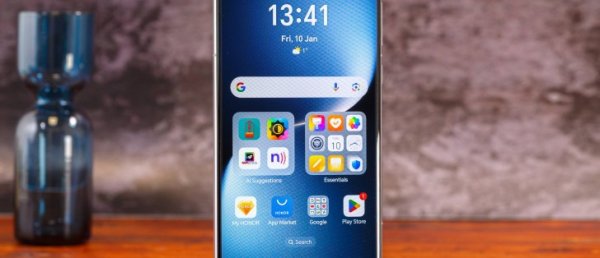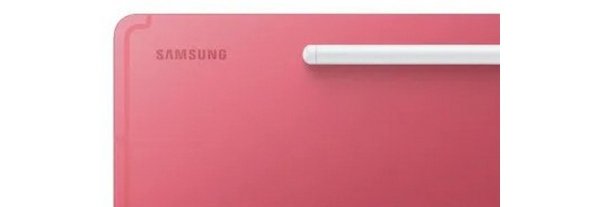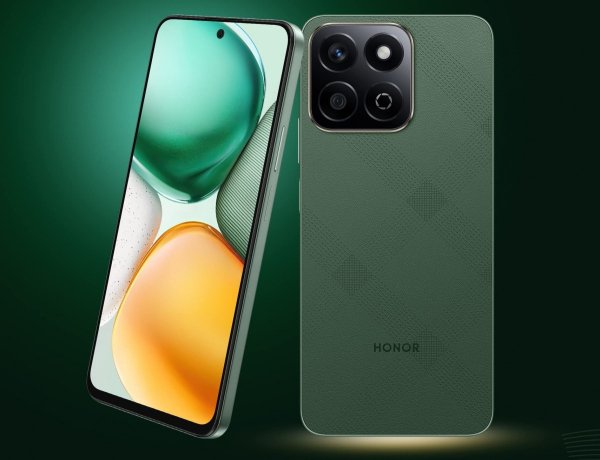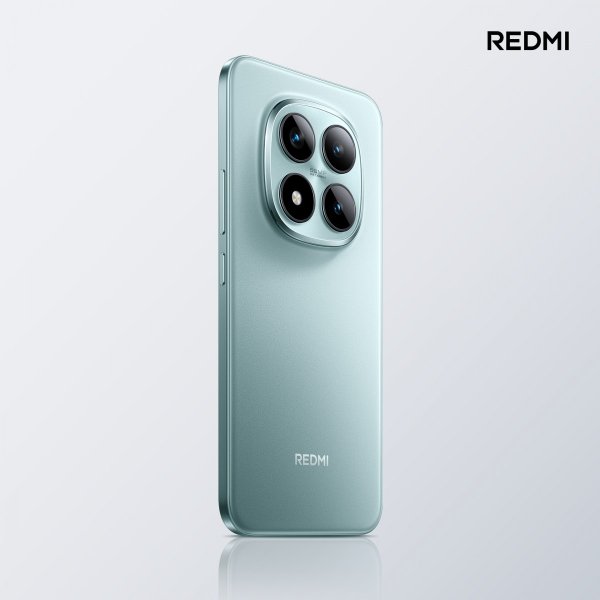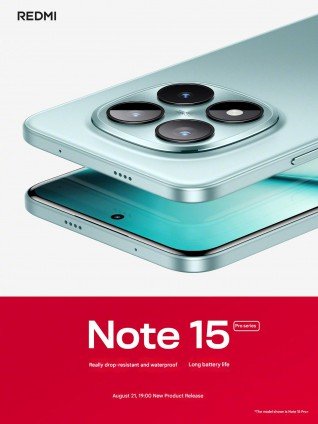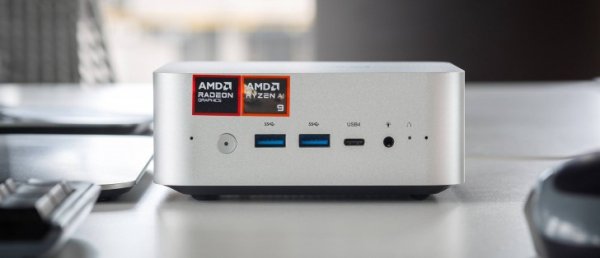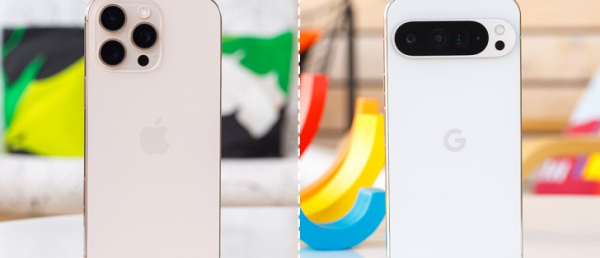
Two definitions of incremental upgrades, the iPhone 16 Pro Max and the Pixel 9 Pro XL nudge their respective lineups forward without rocking the boats too much. Both Apple and Google have done the usual yearly chipset refresh, minor camera updates, and marginal display size increases, which go hand in hand with a battery capacity bump (the Pixel’s difference is smaller than a rounding error, but still). So let’s try and see who does stalling better – Apple or Google?
Table of Contents:
Содержание статьи:
- Design
- Display
- Battery Life
- Charging
- Speaker Test
- Performance
- Cameras
- Verdict
For starters, you can compare the complete specs sheets or directly continue with our editor’s assessment in the following text.
Size comparison
Neither phone attempts to win points for compactness, and both will take a significant amount of your pocket space. The Pixel has remained almost unchanged in its dimensions (it’s even gotten marginally thinner), while the Max has gained a few millimeters in height, and ultimately both are about the same size. Weight is hardly a differentiator, either.
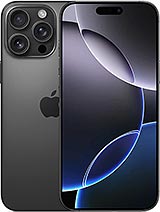
Apple
iPhone 16 Pro Max 227 g 163.0 x 77.6 x 8.3 mm
(6.42 x 3.06 x 0.33 in)
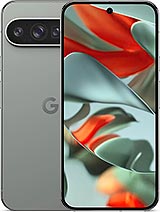
Google
Pixel 9 Pro XL 221 g 162.8 x 76.6 x 8.5 mm
(6.41 x 3.02 x 0.33 in)
The iPhone’s design is largely the same this year, while the Pixel has turned more iPhone-y in 2024 thanks to a flattening of the back and the sides. Each has plenty of personality, so you’ll make a statement with either. That said, neither comes in exciting colors – the 9 Pro XL’s Rose Quartz is the least incognito.
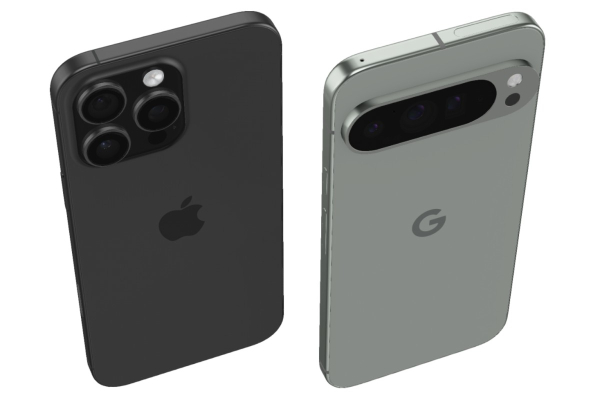
The iPhone 16 Pro Max gets an update to its titanium frame and a new generation of the Apple-specific Ceramic Shield glass that Corning makes for them. Meanwhile, the Pixel’s frame is aluminum, and Google uses mainstream Gorilla Glass Victus 2. Both phones are IP68-rated for dust and water protection, but Apple promises the iPhone is good down to 6m underwater, while Google only covers the standard’s default 1.5m requirement.
A new addition to the 2024 generation of iPhones is the Camera Control key on the handset’s right side. Whether you use it for all of its intended purposes or only as a shortcut to launch the camera, the iPhone offers two extra buttons that can do things – the Pixel needs to make do with the regular power and volume buttons. Perhaps there are two people who would care about this particular advantage.
Display comparison

Apple
iPhone 16 Pro Max 6.9″ LTPO OLED
120Hz 1320×2868
pixels 460
ppi

Google
Pixel 9 Pro XL 6.8″ LTPO OLED
120Hz 1344×2992
pixels 486
ppi
Both phones have spectacular displays that will give you brightness in excess, smooth scrolling, and HDR capabilities. The iPhone’s gotten an increase to 6.9 inches in diagonal this year, while Google has been more modest and only upped the size to 6.8 inches – the previous generation’s parity at 6.7 inches is no more. The Pixel’s pixel density advantage of 486ppi vs. 460pp is immaterial, and both panels are sharp.
We measured 1,796nits on the iPhone and 2,365nits on the Pixel in our testing (under bright light, with auto brightness enabled) and 900 vs. 1,333nits in manual operation – excellent numbers from the Pro Max, exceptional ones from the Pro XL. The Pixel doesn’t have Dolby Vision compliance, though, while the iPhone does. Both max out at 120Hz with smart adaptive behavior and little to no user control on the matter.
Battery life
Battery life is probably the first area that draws a more significant divide between our two contenders. The Pixels capacity is now at 5,060mAh – does the extra 10mAh compared to the 8 Pro count as an increase? The iPhone, meanwhile, gets a slightly more meaningful upgrade to 4,685mAh (up from 4,441mAh last year).
In our testing, the iPhone proved a lot more frugal and posted significantly better scores across all disciplines. So, the Pro Max is better if you spend long days away from a power outlet.
Charging speed

Apple
iPhone 16 Pro Max
4685 mAh 15min
27% 30min
46% Full
117min
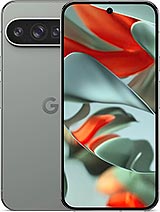
Google
Pixel 9 Pro XL
5060 mAh 15min
39% 30min
67% Full
78min
You know not to expect speedy charging from either of these companies, but the 16 Pro Max proved particularly slow in our testing, not even meeting Apple’s claim for 50% in 30 minutes. The Pixel 9 Pro XL won’t be winning any contests in this field, but it’s still significantly faster than the iPhone – does that make up for the wide endurance gap?
Speaker test
You can count on some nice speakers from both phones, each having a hybrid stereo setup with the earpiece doubling as a top speaker. Both earned ‘Very Good’ ratings for loudness in our testing, but we’d still prefer the iPhone for its overall clearer and larger sound.
Performance
Each of the two phones features the company’s latest proprietary chipset – the A18 Pro on the iPhone and the Tensor G4 on the Pixel. Apple moved to a 256GB minimum storage on the Max last year, and the base version remains the same on the 16 Pro Max. The Pixel, meanwhile, still starts at 128GB, and we find that unacceptable.
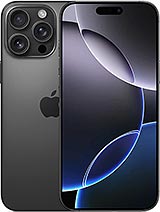
Apple
iPhone 16 Pro Max Apple A18 Pro
3 nm 256GB 8GB RAM
base config
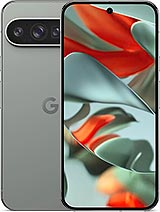
Google
Pixel 9 Pro XL Google Tensor G4
4 nm 128GB 16GB RAM
base config
The 16 Pro Max, as all iPhone 16s, features 8GB of RAM, while the Pixel 9 Pro XL has twice that. However, these are only comparable numbers since each OS handles its resources differently.
Benchmark performance
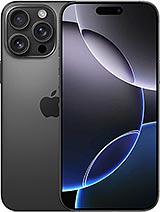
Apple
iPhone 16 Pro Max AnTuTu 10
1,838,828 Geekbench 6
8,606 3DMark
4,731
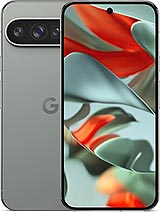
Google
Pixel 9 Pro XL AnTuTu 10
916,808 Geekbench 6
4,109 3DMark
2,540
Apple’s latest chip is traditionally more powerful than the best Android in the same year, while Google’s Tensors typically perform below competing Android chips regarding the raw numbers. With that in mind, it shouldn’t be a surprise that there’s a significant gap in the benchmark scores of the two phones.
We wouldn’t say the Pixel has had us waiting at any point in its operation, of course – both phones are smooth and speedy in their operation, as you’d expect from the top-tier handsets that they are. That said, the iPhone’s advantage in crunching numbers is undeniable.
Camera comparison
The two phones feature similar camera systems, each having a single telephoto at 5x zoom – teles tend to set modern phones apart, but these two offer similar zoom capabilities. The Pixel’s telephoto camera is somewhat more advanced, as it uses a larger 1/2.55″ 48MP Quad Bayer sensor while the iPhone relies on a 1/3.06″ 12MP conventional imager.
The other two cameras are broadly comparable, with the main units around 1/1.3″ and both ultrawides at 1/2.55″. Both phones will have to rely on their AF-capable utlrawides for closeups, since neither telephoto can focus particularly close.
The Google phone does have a bit of an edge in selfie camera sensor tech, its 42MP unit being nicer than Apple’s somewhat aging 12MP 1/3.6″ solution.
Image quality
Both phones capture great photos with their primary cameras in broad daylight. There are subtle differences that come down to color reproduction and tone curves, and we’d probably concede that the Pixel’s output is more easily likable. The 9 Pro XL’s shots also tend to be cleaner, next to a relatively grainy iPhone detail.




iPhone 16 Pro Max daylight photo samples, 1x




Pixel 9 Pro XL daylight photo samples, 1x
At 2x zoom level, both phones capture very similar detail, and that’s pretty good detail indeed.




iPhone 16 Pro Max daylight photo samples, 2x




Pixel 9 Pro XL daylight photo samples, 2x
The telephotos also offer comparable clarity on a pixel level, with the differences in color and contrast still providing a dividing line for your personal preferences to kick in.
If you like to zoom in beyond the native 5x, perhaps the Pixel will serve you better. The iPhone does manage to extract almost as much detail but has an artificial patchy rendition, while the Pixel’s results are more natural.




iPhone 16 Pro Max daylight photo samples, 5x




Pixel 9 Pro XL daylight photo samples, 5x




iPhone 16 Pro Max daylight photo samples, 10x




Pixel 9 Pro XL daylight photo samples, 10x
The differences in global properties continue on the ultrawide cameras, the Pixel capturing livelier images overall. It also has an advantage in detail, but not one that makes a ton of real-world difference.




iPhone 16 Pro Max daylight photo samples, 0.5x




Pixel 9 Pro XL daylight photo samples, 0.5x
Both phones capture nice selfies, but the Pixel has at least one meaningful advantage. Its wider native field of view allows you to capture more people or provide better context for your selfie when shooting at arm’s length distance. Both cameras have AF, so you can do close-ups or unusual angles and still have a sharp face.




Selfie samples: iPhone 16 Pro Max • Pixel 9 Pro XL
At night, the iPhone has an advantage in sharpness and detail when shooting with the main cameras. The Pixel applies heavier noise reduction and smooths out textures, while the 16 Pro Max’s more restrained processing keeps more detail alongside more noise.




iPhone 16 Pro Max low-light photo samples, 1x




Pixel 9 Pro XL low-light photo samples, 1x
The iPhone does considerably better than the Pixel at 2x, the difference in captured fine detail being even more noticeable than it is at 1x.




iPhone 16 Pro Max low-light photo samples, 2x




Pixel 9 Pro XL low-light photo samples, 2x
Despite the Pixel’s seemingly superior telephoto camera hardware, the iPhone captures better photos at 5x zoom. Detail is finer on the 16 Pro Max and has the upper hand in dynamic range in most situations.




iPhone 16 Pro Max low-light photo samples, 5x




Pixel 9 Pro XL low-light photo samples, 5x
Comparing the ultrawides, the Pixel has a strong advantage in dynamic range, producing better exposures and brighter, likable shadows. That blunder with the colors in the fourth shot means it’s not the most reliable regarding auto white balance.




iPhone 16 Pro Max low-light photo samples, 0.5x




Pixel 9 Pro XL low-light photo samples, 0.5x
Video quality
When it comes to video recording, the iPhone has an advantage because of its 4K120 capability and Dolby Vision capture. There’s also a general preference in the industry for using iPhones for semi-serious video work.
In our experience as more casual video shooters, the iPhone produces meaningfully better footage with its primary camera in daylight, whether at 1x or 2x zoom. The 16 Pro Max also had the upper hand in ultrawide or telephoto camera clips, with the Pixel not being able to make a case for itself even at 10x.
Below, we have a few framegrabs from the videos taken by the two phones at each focal length so it’s easier to compare to one another.





iPhone 16 Pro Max daylight video samples: 0.5x • 1x • 2x • 5x • 10x





Pixel 9 Pro XL daylight video samples: 0.5x • 1x • 2x • 5x • 10x
In the dark, there’s more of a parity in detail at 1x and 2x, though we’d still give the nod to the iPhone if forced to choose. The Pixel is doing better on the ultrawide end in sharpness, while neither telephoto is particularly impressive. The 16 Pro Max has an advantage in dynamic range, while the Pixel’s output tends to have harsher tonal extremes.




iPhone 16 Pro Max low-light video samples: 0.5x • 1x • 2x • 5x




Pixel 9 Pro XL low-light video samples: 0.5x • 1x • 2x • 5x
Verdict
iPhones to Androids comparisons are always a bit more of a theoretical pursuit than an attempt to help with purchasing decisions as it’s rare that someone is jumping across the software divide. This time too, a Pro Max vs Pro XL dilemma is probably going to be settled by whether you like iOS and have other Apple devices or you’re more of an Android/Windows person. Either way, you’d be getting each respective maker’s latest software advancements, with plenty of future-proofing, too.
There’s an objective advantage to opting for the iPhone, in that it will give you longer battery life out of a single charge. Whether that alone is enough to make you switch to an iPhone is debatable, but it’s still valuable to know that Google has a lot of catching up to do in the endurance race.
There are some differences in the two phones’ camera capabilities, and certain specifics can nudge you in one direction. iPhones tend to be the go-to choice for video recording, and the 16 Pro Max is no exception, while the Pixel underdelivers in that area. On the other hand, the Pixel photo look will be more appealing to a wider audience.
Ultimately, you’ll likely be happy whichever big Pro you get. Even more likely is that you’ll get the big Pro on your usual OS side.

- Superior video recording.
- Significantly better battery life.
- Latest iOS has to offer.
Get the Apple iPhone 16 Pro Max for:
- 256GB 8GB RAM

$ 1,199.99
- 512GB 8GB RAM

$ 1,399.99
These are the best offers from our affiliate partners. We may get a commission from qualifying sales. Show all prices
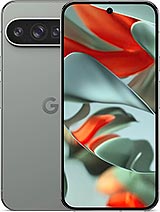
- Livelier photos out of the box.
- Google’s take on Android.
Get the Google Pixel 9 Pro XL for:
- 128GB 16GB RAM

$ 999.00
- 256GB 16GB RAM

$ 892.73
These are the best offers from our affiliate partners. We may get a commission from qualifying sales. Show all prices

